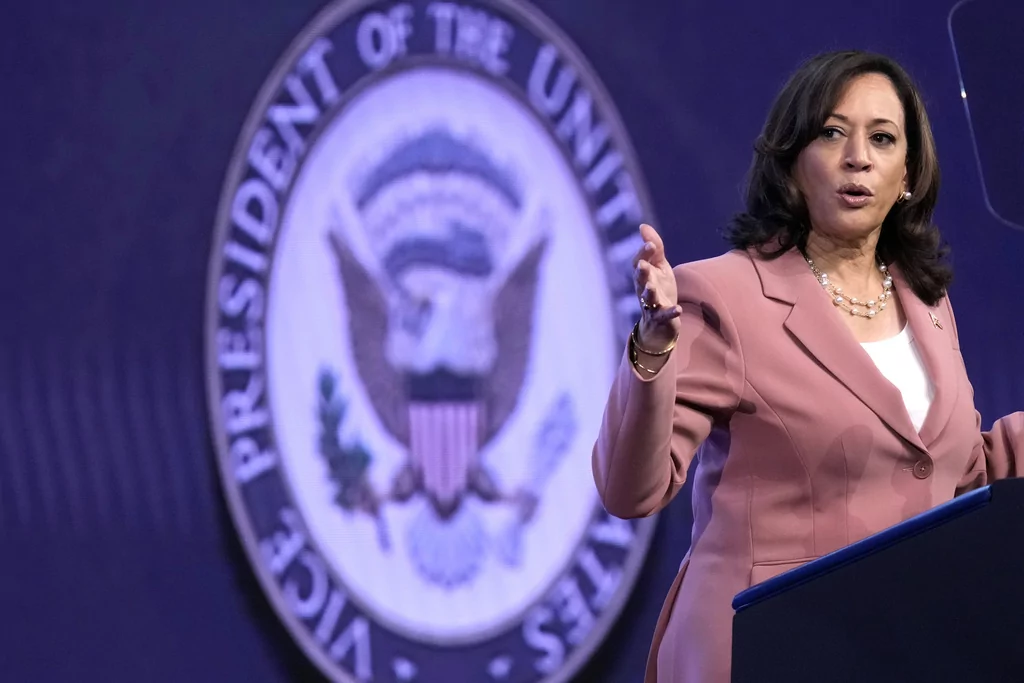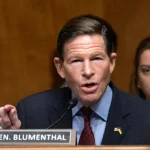

Vice President Kamala Harris has chosen Gov. Tim Walz (D-MN) to be her running mate, fewer than 100 days before the 2024 election and four years to the week that President Joe Biden tapped her to become his No. 2.
Harris’s choice, confirmed by the Associated Press, caps a truncated vetting process after Democrats quickly coalesced behind Harris as their replacement nominee last month after Biden suspended his reelection campaign in response to party pressure to step aside over concerns about his age, mental acuity, and electoral prospects against former President Donald Trump.
Harris’s decision sets a tone for her campaign and potential administration.
Almost a dozen vice presidential candidates were reportedly vetted by former President Barack Obama Attorney General Eric Holder and one-time Biden White House counsel Dana Remus, but the top three contenders became Walz, Govs. Josh Shapiro (D-PA), and Sen. Mark Kelly (D-AZ), after Gov. Roy Cooper (D-NC) withdrew his name from consideration. Transportation Secretary Pete Buttigieg, as well as Govs. Andy Beshear (D-KY) and J.B. Pritzker (D-IL), were also said to be interviewed by Harris’s vetting team and the vice president herself.
Harris’s calculus was reportedly predicated on whether the presumptive vice presidential nominee could help her win before helping her govern, with the desire to avoid negative press like that generated by Sen. J.D. Vance (R-OH) for the Trump campaign over his “childless cat ladies” comments. Harris’s husband second gentleman Doug Emhoff and brother-in-law Tony West, who worked under Holder at the Obama Justice Department, were trusted advisers throughout.
Those supporting Shapiro, 51, who became Pennsylvania‘s governor in 2023 after serving as the commonwealth’s attorney general since 2017, contended he could help Harris win the Keystone State, whose 19 Electoral College votes will likely decide the contest. Harris can win Arizona, Georgia, Michigan, and Wisconsin, but will still not have the 270 electoral votes needed for the presidency.
Shapiro, who is Jewish, encountered a “No Genocide Josh” protest to his vice presidential candidacy, despite having similar policy positions related to the Israel–Hamas war as the other contenders. He was additionally criticized for his lack of leadership after a 2018 sexual harassment complaint was made against a former aide. The staffer was on Shapiro’s payroll until last September when he resigned after the matter was settled.
Similarly to Shapiro, proponents of Kelly, 60, a former astronaut and Navy captain who was first elected to Congress in 2020, argued he could help Harris put Arizona back in play after Biden’s slippage with minority voters and on issues, including the economy and the border, in the Grand Canyon State. Kelly’s wife, ex-Rep. Gabrielle Giffords, almost died in a shooting during a constituent event in 2011, with the couple founding the gun control advocacy and research organization, Giffords, in the aftermath. Kelly came under scrutiny for Chinese venture capital investment in the spy balloon company he started and his delay in supporting the pro-labor union PRO Act.
Walz, 60, a former Army National Guardsman and social studies teacher before he ran for the House of Representatives in 2006, was thought to bring executive experience rather than a battleground state, having been Minnesota‘s governor since 2018. Folksy Midwestern Walz, who was favored by Biden, House Speaker Emeritus Nancy Pelosi, and United Auto Workers President Shawn Fain, was behind the Harris campaign beginning to undermine Trump and Vance as “weird,” with comparisons drawn between him and Sen. Tim Kaine (D-VA), 2016 Democratic nominee Hillary Clinton‘s running mate.
The same arguments were made for Cooper, 67, himself a two-term, term-limited governor. Cooper had the advantage of having a pre-existing relationship with Harris from when he was North Carolina‘s attorney general and she was his Californian counterpart. North Carolina was the state Trump won by the smallest margin over Biden in 2020 and the Harris campaign has projected confidence about it, regardless of polling that suggests otherwise.
“This just wasn’t the right time for North Carolina and for me to potentially be on a national ticket,” Cooper posted on social media.
Harris and her vice presidential pick will now embark on a five-day, seven-state battleground tour, scheduled to kick-off in Philadelphia on Tuesday night, to introduce themselves to the public and underscore what is at stake this election. He already has a Harris campaign chief of staff in Liz Allen, who was most recently the State Department‘s Assistant Secretary for Global Public Affairs.
CLICK HERE TO READ MORE FROM THE WASHINGTON EXAMINER
“In addition to holding rallies in each location along the tour, at venues ranging from big arenas to college campuses, including HBCUs, the vice president and her running mate will also take the time to meet with voters in smaller, more intimate settings, including union halls, family-owned restaurants, campaign field offices, and more,” Harris campaign spokeswoman Lauren Hitt wrote in a statement. “These stops will highlight the ticket’s strength in the blue wall and Sunbelt, from urban areas to rural communities. At each stop, our new ticket will be joined by local elected officials, union members, faith leaders, and more.”
Harris announced her presidential understudy before an Aug. 7 deadline, two weeks before this cycle’s Democratic National Convention, after a political fight with Ohio‘s Republican-controlled legislature over the Buckeye State’s ballot access laws. Although Gov. Mike DeWine (R-OH) signed legislation extending the state’s deadline so Biden and then Harris could appear on its ballots, Democrats have remained adamant Ohio Secretary of State Frank LaRose, a Trump ally, could cause problems and held a virtual roll call vote instead during the last week.





